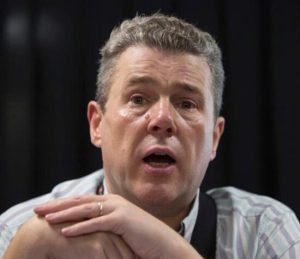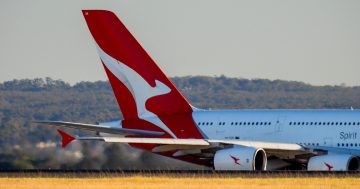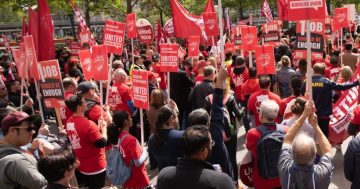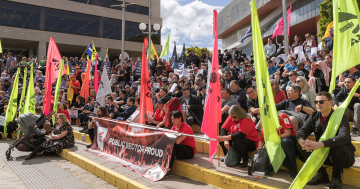 United Kingdom Public Servants running services from passports to pensions have voted to take strike action, joining a wave of stoppages expected to hit home in the next few weeks.
United Kingdom Public Servants running services from passports to pensions have voted to take strike action, joining a wave of stoppages expected to hit home in the next few weeks.
The Public and Commercial Services (PCS) union said the threshold for strike action had been passed in 126 public sector workplaces, covering 100,000 workers.
The PCS represents Public Servants who work in Whitehall, and in front-line services such as job centres, and had balloted 150,000 members.
General Secretary of PCS, Mark Serwotka said the Government must look at the huge vote for strike action across swathes of the Civil Service and realise it could no longer treat its workers with contempt.
“Our members have spoken and if the Government fails to listen to them, we’ll have no option than to launch a prolonged program of industrial action reaching into every corner of public life,” Mr Serwotka (pictured) said.
Public Servants join nurses, who have already backed stoppages in a ballot.
Teachers are also in the process of voting on potential strikes in the New Year, while Unison is balloting more than 300,000 National Health Service workers.
With inflation at 10.1 per cent and many public sector workers having suffered a decade of pay restraint, the scene has been set for a fierce confrontation.
Mr Serwotka has previously suggested his members could take coordinated action, side-by-side with workers from other sectors striking in the coming months.
Recent research by the Institute for Fiscal Studies think-tank showed average public sector wages were four per cent lower in real terms than 15 years ago — against a 0.9 per cent reduction in the private sector.
The bad news for Prime Minister, Rishi Sunak comes as he has been warned that public services will require at least £43 billion ($A75.7 billion) a year in additional funding just to just “stand still” amid the fallout from soaring inflation.
Drawing on research from the New Economics Foundation think-tank, the Trades Union Congress said with inflation at 10.1 per cent, there was now a significant shortfall in the spending firepower of each Government Department compared to the funding settlements they were given in 2021 when Mr Sunak was Chancellor of the Exchequer.
London, 12 November 2022











